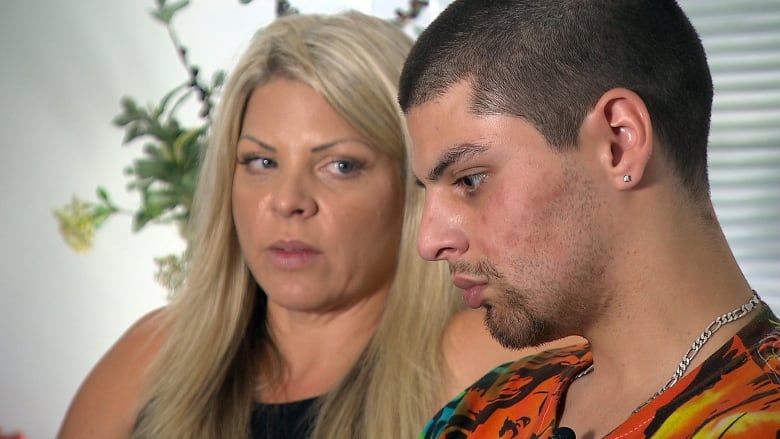'He was so broken': B.C. mother loses son to opioids after years of sobriety
Bryson Diaz was clean for 3 years but still couldn't overcome the shadow of addiction, his mother says

Trinity Diaz wasn't surprised when she saw two police officers walking toward the front door of her Coquitlam home.
It was a sight that usually meant her son, Bryson, had gotten into trouble.
"I went down to the door and said, 'let me guess, you're looking for Bryson?'" said Diaz, who noticed there were more officers than usual.
The police were there to tell her that Bryson had overdosed for the 13th — and final — time.
"I broke down, obviously," she said. "I knew this would happen. I knew he would do this."
Bryson Diaz, 25, was found unresponsive by first responders on the morning of Tuesday, April 9 inside a Coquitlam home. He died alone the night before.

A family struggle
The Diaz family were profiled by CBC News in 2016. At the time, Bryson was grappling with a crippling opioid addiction and actively seeking treatment.
"I lived down in the dumps for so long that if a fentanyl dose killed me I'd be happy to go," he said at the time. Diaz had been dealing with addictions since he was 13 years old.
His family had been critical of the province's efforts to curb the swelling overdose crisis. Thousands of British Columbians have died since 2016.
They had a difficult time finding Bryson a treatment bed. A CBC News investigation at the time uncovered up to six month wait-lists for beds in public facilities, and price tags of up to $40,000 for a spot in private rehab centres.
"They don't do anything to help these people," said Trinity Diaz. "It's not like I just started wanting to get help for him when he was a heroin user. I've been trying to get help for him since he was 13 years old. Nobody would help him ... they just pass the buck to everybody else ... they just looked at him and treated him like he wasn't even worth the breath in his lungs."

A sliver of hope
But after overdosing for the 11th time, the tide seemed to be turning. Bryson became a father, inspiring him to take on both methadone and suboxone treatments to control his cravings.
"He was amazing with his daughter. He loved his daughter. She was his whole life," said Diaz.
Bryson enrolled in substance abuse and violence prevention courses. He got a job at a local church and was even baptized.
"[Bryson] was so happy. He would say 'Mom, I feel so free. I'm finally free,' and he always told me [he would] never touch that stuff again," she said.

A fatal relapse
According to his mother, Bryson Diaz was sober for more than two years before relapsing in January, 2019. She says he was dealing with child custody issues, as well as physical pain in his back and joints induced by his previous drug abuse.
"He suffered and seeing the pain — he couldn't take it anymore," she said. "He was so broken, he just couldn't go on anymore like that."
Trinity Diaz hopes her son's story will be a cautionary tale for families struggling with addiction. She's also reiterating calls she made three years ago for more supports in B.C.'s mental health system — particularly by improving access to treatment beds.
"He was a good boy. He had a good heart. He loved his daughter, and I'm proud of him. And I want him to be remembered for the person he was before the addiction."
